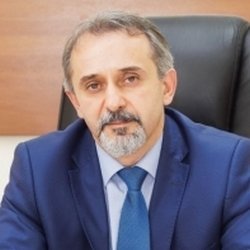Kazan Digital Week. Results: new venture favourites, AI in fintech and the era of cybersecurity 2.0
Will artificial intelligence be put at the service of fintech? When will self-driving cars appear on Russian roads? Why are classic approaches to ensuring cybersecurity in business outdated and what will replace them? What direction have venture investors switched to, forgetting about their recent favourite — IT industry? Leading experts of Kazan Digital Week gave answers to these questions at the final conference of the forum. Read the details in the material of Realnoe Vremya.
Medicine — a new competitor of “venture favourite”
The four-day international forum Kazan Digital Week is coming to an end, which means that it's time to summarize the results. A summary from central speakers and co-organisers of the event was made at the final press conference.
Arsen Savva, the head of the innovation development department of the Investment and Venture Fund of Tatarstan (IVF RT), spoke on the topic of innovations integrated into business. First of all, he assessed the climate that has developed in the investment market under the influence of the pandemic. The speaker noted that venture investors are traditionally resistant to crises, since the investment horizon is on average 5-7 years, therefore, the economy of funds is always based on a six-month or longer crisis.
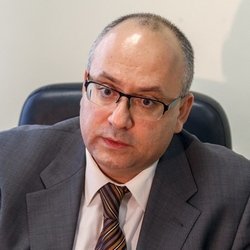
Arsen Savva also drew attention to that in connection with the pandemic the importance of services related to remote delivery, education, medicine, and retail has dramatically increased.
“The main favourite for the venture market, judging by the results of the forum, is the medical direction. It will compete with the venture favorite of the previous decade — IT sector," said the representative of the IVF RT.
The advent of information security 2.0
Large-scale work was carried out within the framework of another section of the forum — Cybersecurity of the New Time. The representatives of Russian and international companies, as well as leading security consultants, worked in this area.
During the three days of the event, experts had time to discuss cybersecurity in the era of business digitalisation, share their experience in the latest information security solutions and their implementation. A full-fledged master class on cyber studies was also held for the forum participants.
The main idea that can be highlighted following the results of the last forum is that classical approaches to ensuring computer security no longer work. The thing is that most often they are reduced to the desire to formally meet the requirements of regulators or mindless funds pumping into the purchase of IT solutions that are then not used properly.
InnoSTage, IT company, which co-organised the forum, believes that two key factors hinder effective counteraction to computer threats: a lack of qualified personnel and a misunderstanding between businesses and security specialists.
InnoSTage CEO Aydar Guzairov spoke in detail about the first reason on the sidelines of Kazan Digital Week, pointing out that, according to international research, in 2020 the number of unfilled vacancies in the field of cybersecurity may reach a record figure of 3,5 million people, and over the past 5 years, the shortage of personnel has more than tripled.
As for the differences between information security specialists and business, the problem here is the desire of the former to “seal” the contour as much as possible and the inability of the latter to work effectively in such conditions.
The solution may be to implement the concept of the new generation of cybersecurity or information security 2.0. This approach consists of “talking to businesses in the language of business”, checking the company's resilience to identified critical incidents, selecting and implementing a system of protection against real-world attack vectors, creating cyber resilience centres in companies, and, finally, constantly checking the effectiveness of already implemented means and measures of protection.
Summing up the results of Kazan Digital Week, InnoSTage CEO Aydar Guzairov said that “the forum finished successfully”, despite a serious challenge that its organisers had to face.
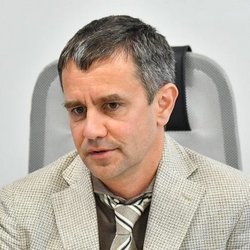
We also note that the cybersecurity section may become one of the key sections of the Kazan Digital Week forum in 2021.
Cybersecurity and artificial intelligence in fintech
It should be noted that experts from the neighbouring section — Fintech Ecosystem — showed great interest in the topic of cybersecurity.
According to Rafael Valeyev, the director general of Ak Bars Digital Technologies PLC, who is a co-organiser of the forum, the financial industry pays special attention to the organisation of information security. At the same time, the number of challenges in this area is growing, so the information presented at the event is of great value for the entire sector.
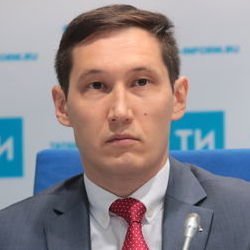
Self-driving cars on roads and the “broad powers” of situation centres
As we wrote earlier, much attention was paid to the topics of intelligent transport systems and situation centers. Experts in these fields had a little more difficult time than colleagues from neighbouring sections, because during the final press conference they had to answer uncomfortable questions from the audience.
For example, the head of the state budgetary institution “road safety” Rifkat Minnikhanov was asked what, in his opinion, is the primary situation center or the regional management center. The official called this question political one but agreed to express his personal opinion on this matter.
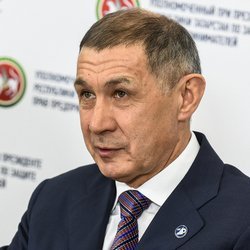
In my opinion, the situation centre is everything. At the forum, we talked about fintech and ITS — all this is done as part of the processing of certain data, and the manager receives decisions. In turn, the control centre of the region today, unfortunately, solves narrow tasks. First of all, they were talking about complaints and statements of citizens, and in the Republic of Tatarstan, it was decided by People's Control," said Rifkat Minnikhanov.
No less acute question was asked to the head of the department of organization and road safety at the MADI (Moscow Automobile And Road Construction State Technical University), Sultan Zhankaziev — it concerned the timing of the appearance of self-driving cars on the roads of Russia.
